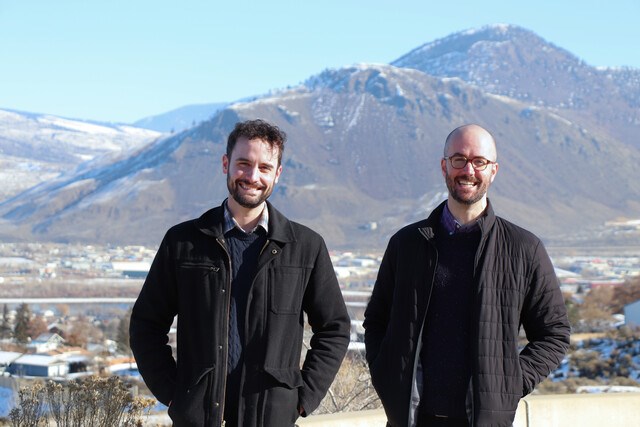A law professor at Thompson Rivers University has launched a database of internal government documents, a tool he hopes will be used to support Canadian journalism.
Matt Malone, a TRU assistant law professor, is the founder of Open By Default. The website has been billed as the largest database of internal government documents ever made publicly accessibly by the Investigative Journalism Foundation.
The database, which was launched Tuesday in partnership with IJF, came out of an “intensive” two-year effort from Malone and is a collection of previously released access to information records.
“There is a very sort of annoying website which provides metadata for requests that have been released,” Malone said.
“We essentially automated requesting all of the copies through the use of this metadata and we just started to obtain thousands and thousands of copies of records.”
At launch, the database is comprised of over 20,000 documents, totalling nearly 420 gigabytes of data, and is expected to continue to grow.
Public interest was the catalyst
Malone said while the B.C. government will make copies of disclosed freedom of information requests available online, the federal government doesn’t — and even deletes documents after a period of time.
“The goal is to make a living, sustainable database for access to information in Canada, and we want to expand to all jurisdictions that do not proactively disclose copies of access to information requirements,” Malone said.
“The preservation of these records can serve all kinds of public interests when it comes to journalism, when it comes to research, when it comes to innovation, and so on. So those public interests were really catalyzing for us for what was a lot of volunteer work at the outset of the project.”
When requesting copies of previously-fulfilled access to information requests, Malone said there is no legislated time frame the government must respond within. However, the database makes these documents instantly accessible.
Malone said he was able to secure a $5,000 Internal Research Fund to start the project, which covered administrative expenses and led to the hiring of Adam Soames, a master of environmental science studies student who played a pivotal role in developing the project.
“He tackled some incredibly challenging programming issues that we had, and just just did phenomenal work that kind of enabled us to build a really, really good prototype,” Malone said.
Once they had the prototype, the project began to be pitched around to different groups, including the government.
“We got a very unwelcome reception from the government,” said Malone.
A tool for journalists
They eventually took the project to the Investigative Journalism Foundation, which signed an agreement to help develop the project.
“We want to support high quality journalism in Canada, and the best way to do that is to put real information in the hands of journalists to tell stories,” Malone said.
“The unwelcome reception from the government was a little interesting, because with all the money they throw in journalism, they also underfund the access information system really systematically to avoid putting relevant information in the hands of journalists.”
According to Malone, the access to information system is “broken” and is in need of reforming — and he hopes Open By Default will help to instigate discussion around this issue.
He said several tangible changes he’d like to see include releasing copies of previously released records and putting them in the public domain, enabling legislation that requires federal institutions to provide these documents, more discretion around the use of redactions, exemptions and exclusions when the documents are released, and speeding up the complaint process.


